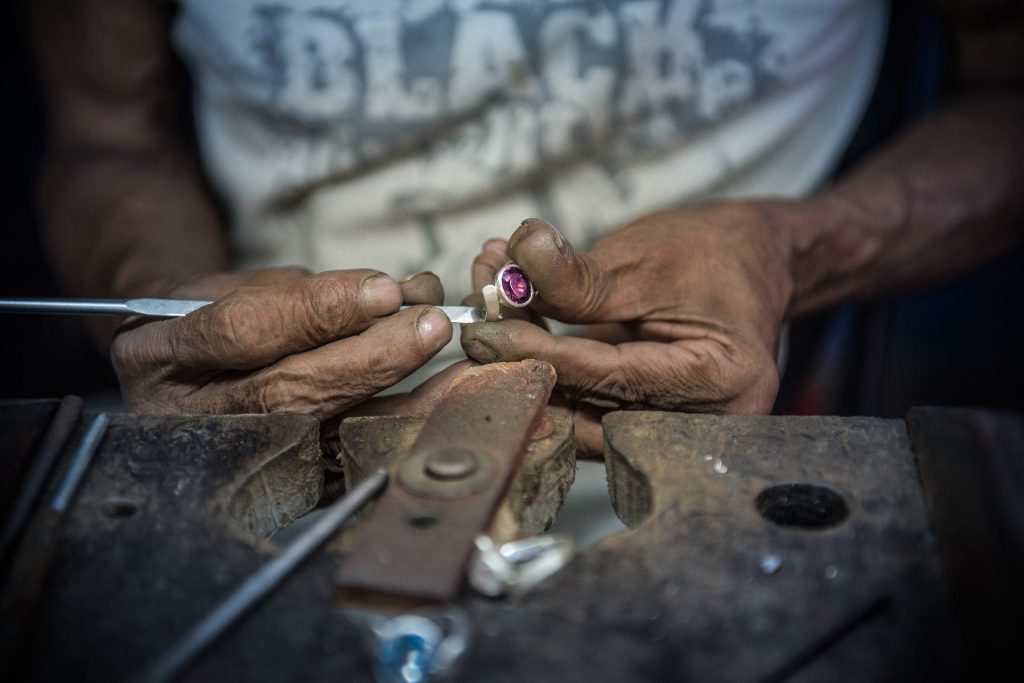Yesterday, September 14, the Department of Homeland Security’s US Customs and Border Protection agency issued five Withhold Release Orders on goods that are known to be produced using forced labor of Uyghurs and other ethnic minorities in the northwestern Chinese province of Xinjiang Uyghur Autonomous Region (XUAR).
The US Customs and Border Protection will seize all shipments of goods with ties to forced labor and prison camp labor and prevent their passing through the import process. This landmark decision exhibits the United States’ commitment to eradicate all semblances of forced labor in American and international company supply chains in accordance with Section 307 of the Tariff Act of 1930, which “prohibits the importation of all goods and merchandise mined, produced, or manufactured wholly or in part in any foreign country by forced labor, convict labor, or/and indentured labor under penal sanctions, including forced child labor.”
Secretary of State Mike Pompeo reflected:
“These orders demonstrate that the world will not stand for the PRC’s human rights abuses against Uyghurs and members of other Muslim minority groups in Xinjiang, which include subjecting individuals to forced labor and stripping them of their freedom and agency to choose how and where they work.”
Novel reports such as Citizen Power Initiatives for China’s (CPIC) Cotton: The Fabric Full of Lies and the Australian Strategic Policy Institute’s (ASPI) Uyghurs for Sale both detail not only the process of arbitrary detention, forced transferral to factories, and coerced labor of ethnic minorities including Uyghurs, but they also link the forced labor of 80,000 Uyghurs to the supply chains of 83 well-known international brands. These reports have created a concrete foundation through which companies can be urged to engage in corporate social responsibility- by eliminating forced labor in their supply chains- without being able to claim ignorance or lack of awareness as an excuse.
This reports have also seen other major moves by the US government throughout July and August 2020- On July 1, the US Department of the Treasury, Department of Commerce, and Department of Homeland Security collectively issued the Xinjiang Supply Chain Business Advisory, which warned global companies to refrain from engaging with “entities complicit in forced labor”; On July 9, the US Department of the Treasury’s Office of Foreign Assets Control (OFAC) sanctioned the Xinjiang Public Security Bureau (XPSB), Communist Party Secretary of Xinjiang Chen Quanguo, former Deputy Party Secretary of Xinjiang Zhu Hailun, as well as two current XPSB leaders, Huo Liujun and Wang Mingshan; on July 31, OFAC sanctioned the Xinjiang Production and Construction Corps (XPCC) for its involvement in construction of concentration camps, former Political Commissar of the XPCC Sun Jinlong, and Deputy Party Secretary and Commander of the XPCC Peng Jiarui.
Other important actions taken by the US include the Department of Commerce’s May 22 addition of nine organizations to the Commerce Entity list for their involvement in the human rights violations taking place throughout Xinjiang, which followed in the footsteps of 29 PRC entities being added back in October 2019. Also in October, the State Department placed visa restrictions on PRC and CCP authorities “responsible for, or complicit in, human rights abuses in Xinjiang.”
Below is a brief list of the products and companies that are blacklisted imports pursuant to the September 14 US Customs and Border Protection’s issuance of 5 Withhold Release Orders:
- “All products made with labor from the Lop County No. 4 Vocational Skills Education and Training Center“
- “Hair products made in the Lop County Hair Product Industrial Park“
- “Apparel produced by Yili Zhuowan Garment Manufacturing Co., Lt. and Baoding LYSZD Trade and Business Co., Ltd.”
- “Cotton produced and processed by Xinjiang Junggar Cotton and Linen Co., Ltd.”
- Computer parts made by Hefei Bitland Information Technology Co., Ltd.”
Also in 2020, products from three other companies were issued Withhold Release Orders for also being involved in forced labor of minorities in China: Hero Vast Group (August), Lop County Meixin Hair Products Co., Ltd. (June), and Hetian Haolin Hair Accessories Co., Ltd. (May).
We are expecting that more sanctions and more Withhold Release Orders as the United States becomes more assertive in holding China responsible for egregious human rights violations.
Image by photoliver from Pixabay

